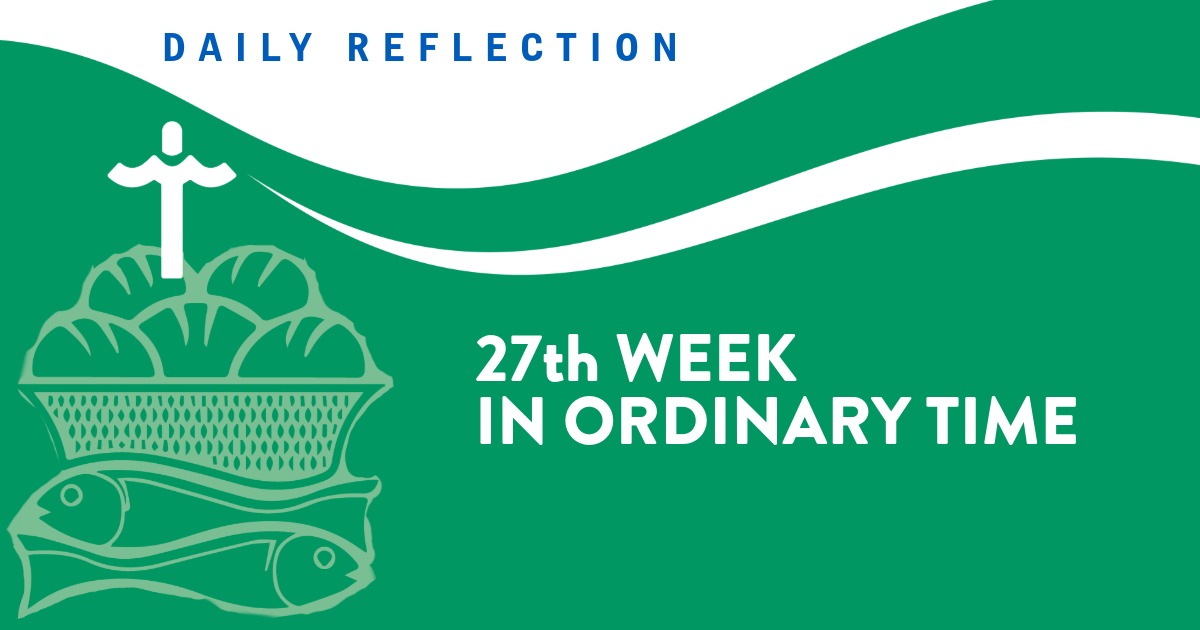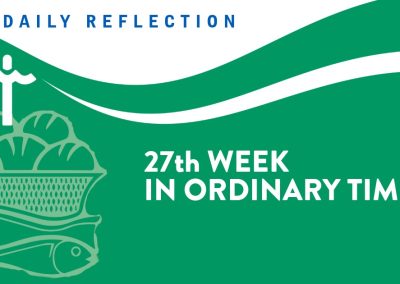Wednesday of the Twenty-seventh Week in Ordinary Time
In Jonah 4: 1-11, Jonah is angry because God did not destroy Nineveh. He was thinking about that one city in Iraq, the way we once thought about the whole country: how evil and dangerous it was; what a threat it was to us and to our prosperous society. Many were angry because we did not destroy Iraq after the Gulf War. Many voted to destroy it later so that we might feel safe.
God reminded Jonah that there were in Nineveh “more than a hundred and twenty thousand persons who cannot distinguish their right hand from their left” — presumably infants. But Jonah still wanted the city destroyed.
Our knee-jerk solution to situations that threaten us is violence. Our government wants us to be perceived as a nation that is powerful and full of vengeance against anyone who attacks us. But God thinks differently: “Lord, you are tender and full of love.” Whom do we follow?
In Luke 11: 1-4, Jesus teaches us that if we choose to follow him, we should conform our hearts to his by making the petitions of the Our Father our first priorities. These are the goals Jesus lived and died for. If we make them our priorities, we will learn how to pray — and what we should pray and work for.
These goals are already achieved! The Our Father is an “eschatological” prayer that asks for the “end time,” for Christ’s victory to be complete. We need to work for God’s victory in our time, but in God’s time it already is: “For the kingdom, the power and the glory are yours now — and forever!”
This is the source of our hope. Jesus has already won. “Take courage,” he said on the eve of his apparent defeat on the cross: “I have conquered the world!” (John 16:33). He says the same to us today. As stewards of his kingship, we need to keep working with unfailing hope to bring about change in the world.
Initiative: Be Christ’s steward. Take hope, give hope, and work with hope.
— Fr. David M. Knight
View today’s Mass readings, Lectionary #463, on the USCCB website here
Fr. David M. Knight (1931-2021) was a priest of the Diocese of Memphis in Tennessee, a prolific writer, and a highly sought after confessor, spiritual director, and retreat master. He authored more than 40 books and hundreds of articles that focus primarily on lay spirituality and life-long spiritual growth.





0 Comments